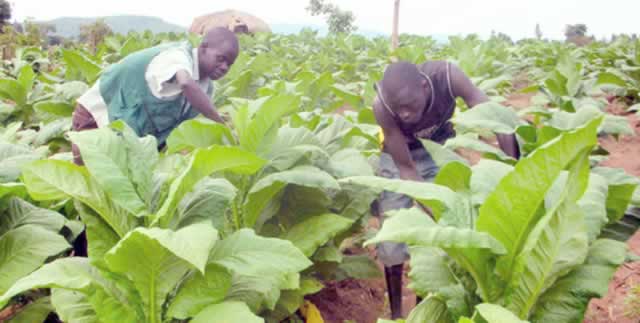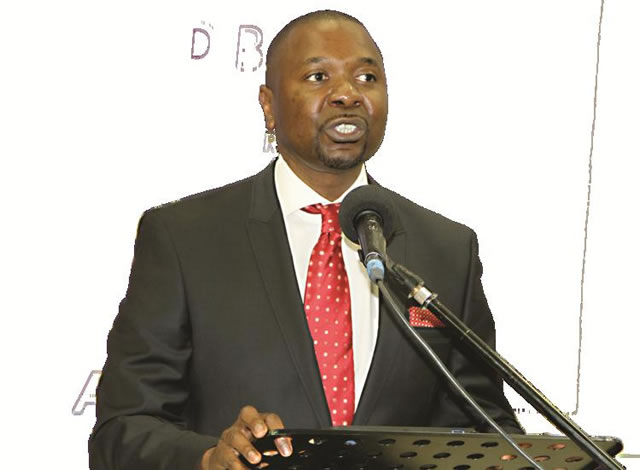Maids, farm workers silent victims of internal human trafficking

Fairness Moyana
SIPHO Mugande (not her real name) heaves a sigh of relief after finally managing to put the baby to sleep.
Suddenly her joy is turned into dismay as she realizes the task at hand. Having woken up at 5am to prepare breakfast for the family, the silence of the house tells her it’s going to be a long day. The 12-roomed house gapes for her attention. So do the almost one tonne laundry and the dishes from last night’s party. A tear escapes her left eye as she remembers the home she left behind in search of greener pastures.
When her aunt Stella approached her with a possible job opportunity in Bulawayo six months ago, Sipho, a 15-year-old Form 2 dropout from Siachilaba in Binga, Matabeleland North, saw her dream of completing her studies come true. She would save enough money to help her family out of the hold of poverty.
However, the dream she had envisaged slowly turned into a nightmare barely three days after starting her duties as a domestic worker. “Madam” who was very nice to her on the first day informed her that she would be entitled to free accommodation in the staff quarters and food, above it all she would receive a salary of $100 per month.
When month-end finally came her joy and anticipation of handling $100 let alone $10 was shattered as “madam” read out a list of items that needed to be put into consideration before handing her a $20 note.
These included the accommodation she was using, the food she ate, the broken coffee mug reportedly costing $10, scorching madam’s blouse which was said to cost $35 and decolourising her son’s $16 T-shirt amongst a host of others. For six months Sipho endured the pain unable to run away or turn to anyone as efforts to secure a break to visit or send her family money were denied for fear she might not return.
Across the country at a farm in Macheke in Mashonaland East, David Mudenda’s six months experience turned out to be the opposite of what he had been made to believe. Originating from a drought-stricken village in Dete, Hwange District David’s uncle who worked on one of the farms in the agricultural region of Mashonaland East province offered to take him along and find him a job.
With hundreds of kilometres from home and with no-one to call family, David dismissed the possibility of going back to his impoverished region with nothing to show for his six months’ work. He soldiered on working long hours in the tobacco and broccoli fields for little remuneration with the farm owner arguing that he was providing accommodation, food and clothes for him hence he was being generous by offering that amount at all.
Sipho and David’s sad stories are examples of internal human trafficking, a phenomenon that is less known and spoken about in the country but rife.
According to the International Organisation for Migration (IOM), thousands of people are trafficked within their own national borders. While awareness on human trafficking is growing in the Southern African region and beyond more needs to be done locally in educating the public.
Experts say human trafficking is a blight that affects the community, especially women and children who are trafficked from rural areas and foreign countries into the inner city. The economic hardships of the last decade saw a number of people being trafficked from the rural areas to urban setups as the country’s unemployment rate soared.
IOM Zimbabwe counter-trafficking officer Tapfuma Kusemwa said cases of internal human trafficking were rife and usually occurred without much notice from the general public.
“Internal human trafficking occurs right under our very noses especially domestic work where victims mostly from rural areas are transported to towns and cities for the purposes of exploitation,” said Kusemwa.
He said people are usually trafficked within their own national borders, especially from rural areas to big cities which are not familiar to them.
Transporting a victim from a familiar environment to an unfamiliar one makes it easy to exploit that person. It is in this new environment that the trafficker’s true intentions are revealed.
Exploitation is the ultimate purpose of human trafficking.
Human trafficking is a new form of slavery that involves three stages: recruitment, transportation and exploitation.
Recruitment is often by deception where victims are falsely promised marriage or jobs, while others are simply abducted. In the case of Sipho, her aunt recruited her by partial deception after informing her that she would be doing a particular kind of work but did not disclose the deplorable conditions and full exploitative nature of the work that she would be subjected to.
The second phase of human trafficking is transportation where both Sipho and David were moved from a familiar environment which is their rural setup to an unfamiliar environment, the big city and farm making it easier to exploit them. Later they were overworked for little wages as their employers exploited them in the quest for cheap labour.
It is important for all organisations involved in counter-trafficking programmes to have a clear understanding of the concept of human trafficking in order to ensure that effective measures are designed and implemented to combat it.
As has been the case, the public and some relevant organisations, including the media, humanitarian actors and even policy makers, conflate human trafficking with related phenomena like human smuggling.












Comments